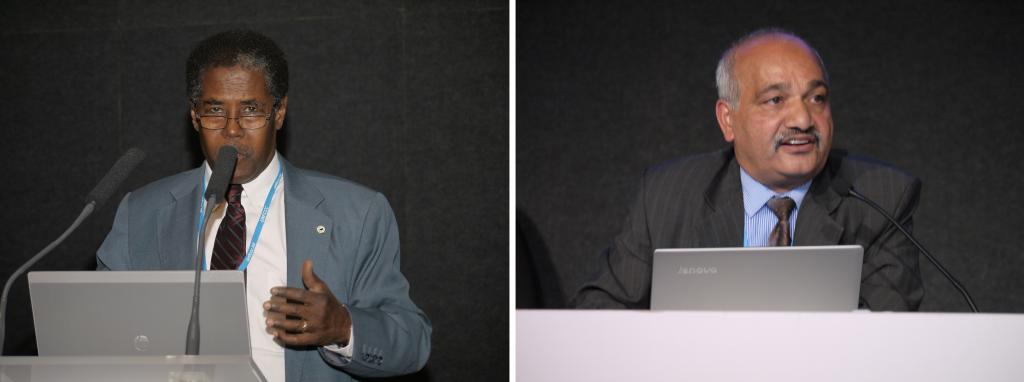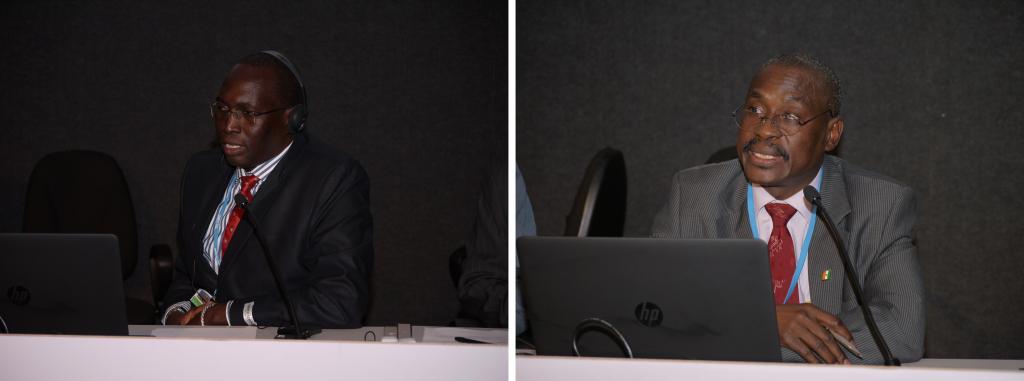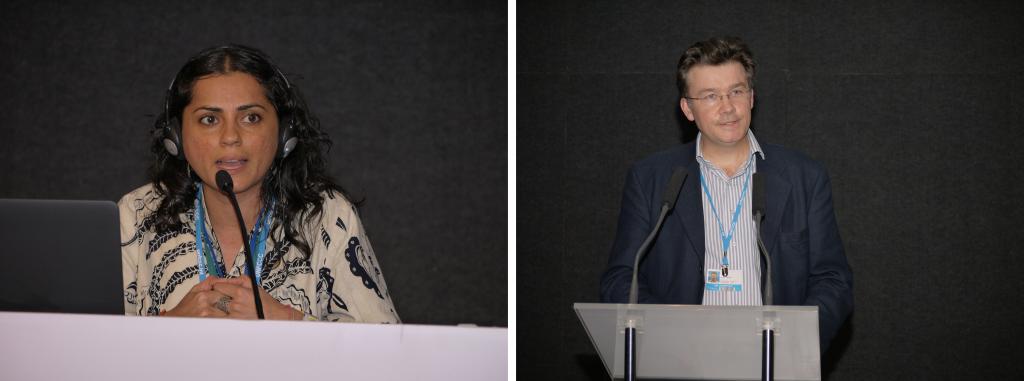COP20 Side Event Shows How Countries are Putting their National Adaptation Plans into Practice
4 December 2014, Lima, Peru - While ‘NAP’ (short for National Adaptation Plan) was just another international buzzword a few years ago, Least Developed Countries (LDCs) are translating the concept into reality, influencing planning and budgeting at national, sub-national and local levels. At the same time LDCs are facing extreme and very pressing challenges as a result of climate change, in particular in the Sahel region.
The extent of the work that is being done became clear at a side-event organized by the Government of Niger, the Permanent Interstate Committee for Drought Control in the Sahel (CILSS), and Clean Energy Nepal (CEN), in collaboration with the UNDP-UNEP National Adaptation Planning Global Support Programme (NAP-GSP), at the annual Climate Conference in Lima (COP 20). Statements on adaptation needs and action were made by Cambodia, Comoros and Malawi, in addition to Niger. The event, entitled “National Adaptation Planning – Preparing LDCs to Address Climate Risks”, was chaired by Mr. Batu Uprety, Chair of the LDC Expert Group (LEG).

H.E. Djimé Adoum, Executive Secretary of CILSS opened the event, highlighting the importance of mainstreaming climate change adaptation within national planning frameworks and budgets. The CILSS is a regional organization helping Sahelian countries to adapt, with a particular focus on the agriculture sector. Referring to calls for additional international climate finance for adaptation, Dr. Adoum said: “Developing countries cannot only sit and wait for external resources. We need to demonstrate our seriousness and allocate national budgetary resources to adaptation actions. If you can demonstrate that returns on investment are high, international funding will follow.”
Mr. Uprety provided an overview of the activities organized by the LEG to support LDCs, including inter alia the NAP Guidelines, dedicated technical papers, the NAP Expo, and NAP Central knowledge platform. He highlighted that many countries had embarked on the NAP process and expressed his hope that the side event will further encourage LDCs to move forward with integrating adaptation into national planning and budgeting processes.

Mr. Benoit Sarr from CILSS presented a number of capacity building activities that the Committee is offering to support Sahelian countries in mainstreaming climate change into policies and plans. He stressed the physical impacts of climate change already occurring across the sub-region and the possible future of a 50% loss of agricultural productivity without adaptation action on the ground. He highlighted the need for support which is tailored to national context and presented a capacity building approach with a strong focus on skills development.
Dr. Kamayé Maâzou, Executive Secretary of the National Council for the Environment and Sustainable Development (CNEDD) of Niger talked about the importance of integrating climate change adaptation in policies at all levels, including national, sectoral and local policies and plans. “Niger is already facing a drought event one year in every two. It is our new reality”, said Dr Maâzou. Niger is putting in place the necessary institutional structures and processes to support action on climate change adaptation working through a range of national investment projects. This aims to support all 266 municipalities in the country.

Ms. Rohini Kohli from the NAP-GSP discussed a number of lessons learned from the global support programme that is supporting LDCs upon request with technical assistance to initiate the NAP process. Ms. Kohli highlighted in particular the important role of Planning and Finance Ministries in national adaptation planning, the connection between NAPs and existing National Adaptation Programmes of Action (NAPAs), as well as the need for one-on-one technical support for countries, and regional thematic training combined with South-South exchange.
The Chair of the meeting, Mr. Uprety summed up several pressing challenges and issues to be considered on the topic of adaptation planning. He highlighted the challenge of integrating climate change with development; the centrality of managing both floods and drought; the specific vulnerabilities of the poor, and the need for localized climate adaptation planning and having appropriate actions on the ground, and finally the importance of making climate science more user-friendly.
The event was moderated by Mr. Angus Mackay from the United Nations Institute for Training and Research (UNITAR), a NAP-GSP partner organization.
Related Links
Permanent Interstate Committee for Drought Control in the Sahel (CILSS): http://www.cilss.bf/
National Council for the Environment and Sustainable Development (CNEDD) of Niger: http://www.cnedd.ne/
Clean Energy Nepal (CEN): http://www.cen.org.np/
UNDP-UNEP National Adaptation Planning Global Support Programme (NAP-GSP): http://www.undp-alm.org/projects/naps-ldcs
Images 1: H.E. Djimé Adoum, Executive Secretary of CILSS (left) and Mr. Batu Uprety, Chair of the LDC Expert Group (right)
Images 2: Mr. Benoit Sarr, CILLS (left) and Dr. Kamayé Maâzou, Executive Secretary, CNEDD (right)
Images 3: Ms. Rohini Kohli (left) and Mr. Angus Mackay, NAP-GSP (right)

